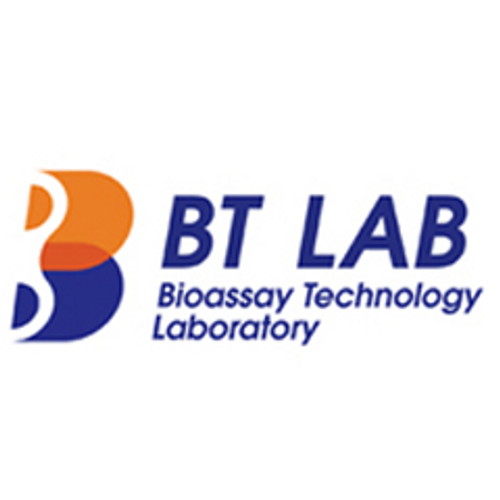Product Description
Rat Atrial natriuretic peptide-converting enzyme (CORIN) ELISA Kit | AE61374RA | Abebio
Species Reactivity: Rat (Rattus norvegicus)
Abbreviation: CORIN
Alternative Name: ATC2; CRN; Lrp4; MGC119742; TMPRSS10; atrial natriuteric peptide-converting enzyme|corin|corin; serine protease|heart specific serine proteinase|pro-ANP-convertase|pro-ANP-converting enzyme
Application: ELISA
Range: 0.156-10 ng/mL
Sensitivity: 0.061 ng/mL
Intra-Assay: ≤4.5%
Inter-Assay: ≤7.4%
Recovery: 1, 08
Sample Type: Serum, Plasma, Other biological fluids
Detection Method: Sandwich
Analysis Method : Quantitive
Test Principale: This assay employs a two-site sandwich ELISA to quantitate CORIN in samples. An antibody specific for CORIN has been pre-coated onto a microplate. Standards and samples are pipetted into the wells and anyCORIN present is bound by the immobilized antibody. After removing any unbound substances, a biotin-conjugated antibody specific for CORIN is added to the wells. After washing, Streptavidin conjugated Horseradish Peroxidase (HRP) is added to the wells. Following a wash to remove any unbound avidin-enzyme reagent, a substrate solution is added to the wells and color develops in proportion to the amount of CORIN bound in the initial step. The color development is stopped and the intensity of the color is measured.
Product Overview: Corin encodes a member of the type II transmembrane serine protease class of the trypsin superfamily. The encoded protein converts pro-atrial natriuretic peptide to biologically active atrial natriuretic peptide, a cardiac hormone that regulates blood volume and pressure. This protein may also function as a pro-brain-type natriuretic peptide convertase.The corin cDNA encodes a deduced 1, 042-amino acid, type II transmembrane protein. At its N terminus, corin contains a short cytoplasmic domain and a transmembrane sequence. In the extracellular region of corin, there are 2 frizzled-like cysteine-rich motifs, 7 low density lipoprotein receptor repeats, a macrophage scavenger receptor-like domain, and a trypsin-like protease domain at the C terminus.
Stability: The stability of ELISA kit is determined by the loss rate of activity. The loss rate of this kit is less than 5% within the expiration date under appropriate storage condition. The loss rate was determined by accelerated thermal degradation test. Keep the kit at 37°C for 4 and 7 days, and compare O.D.values of the kit kept at 37°C with that of at recommended temperature. (referring from China Biological Products Standard, which was calculated by the Arrhenius equation. For ELISA kit, 4 days storage at 37°C can be considered as 6 months at 2 - 8°C, which means 7 days at 37°C equaling 12 months at 2 - 8°C) .
 Euro
Euro
 USD
USD
 British Pound
British Pound
 NULL
NULL








